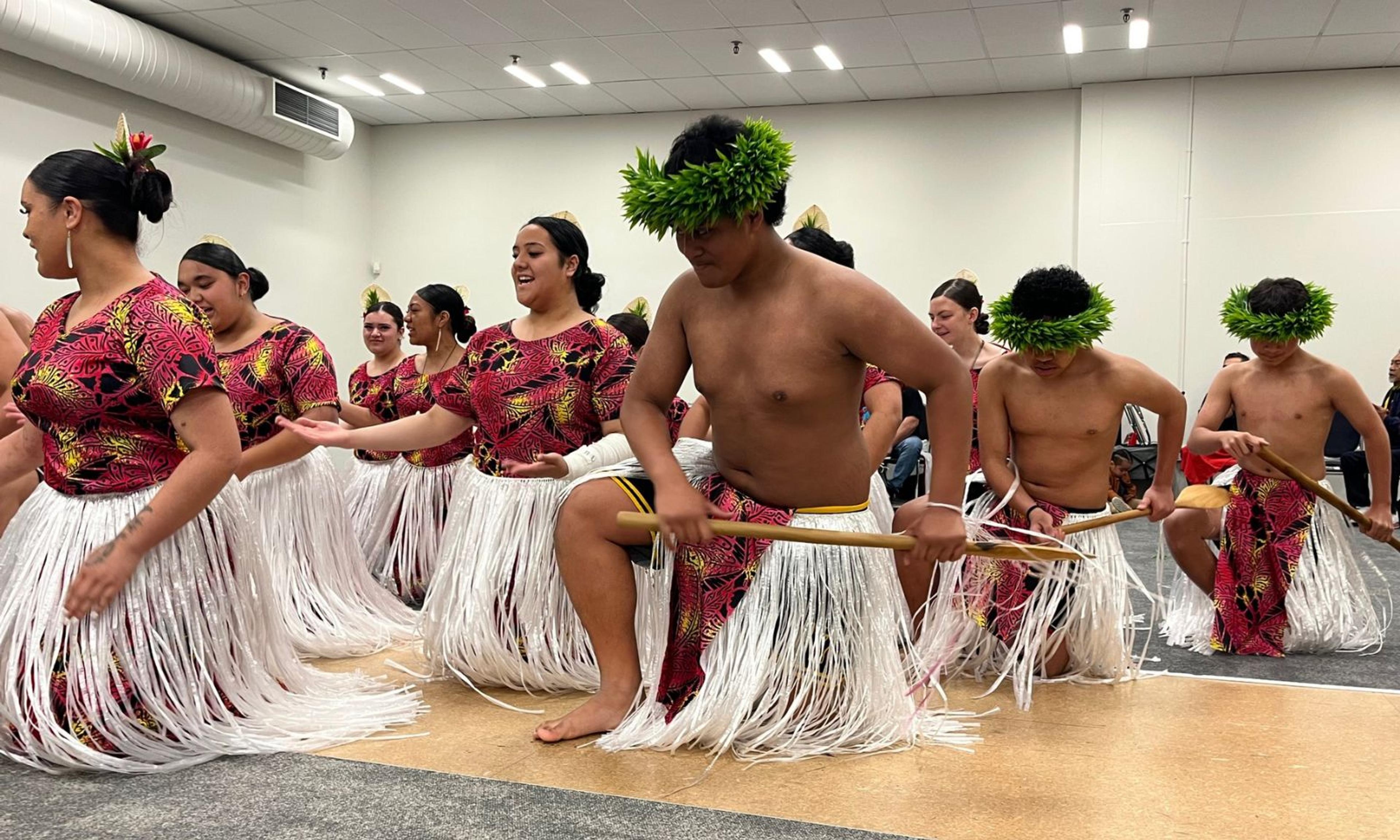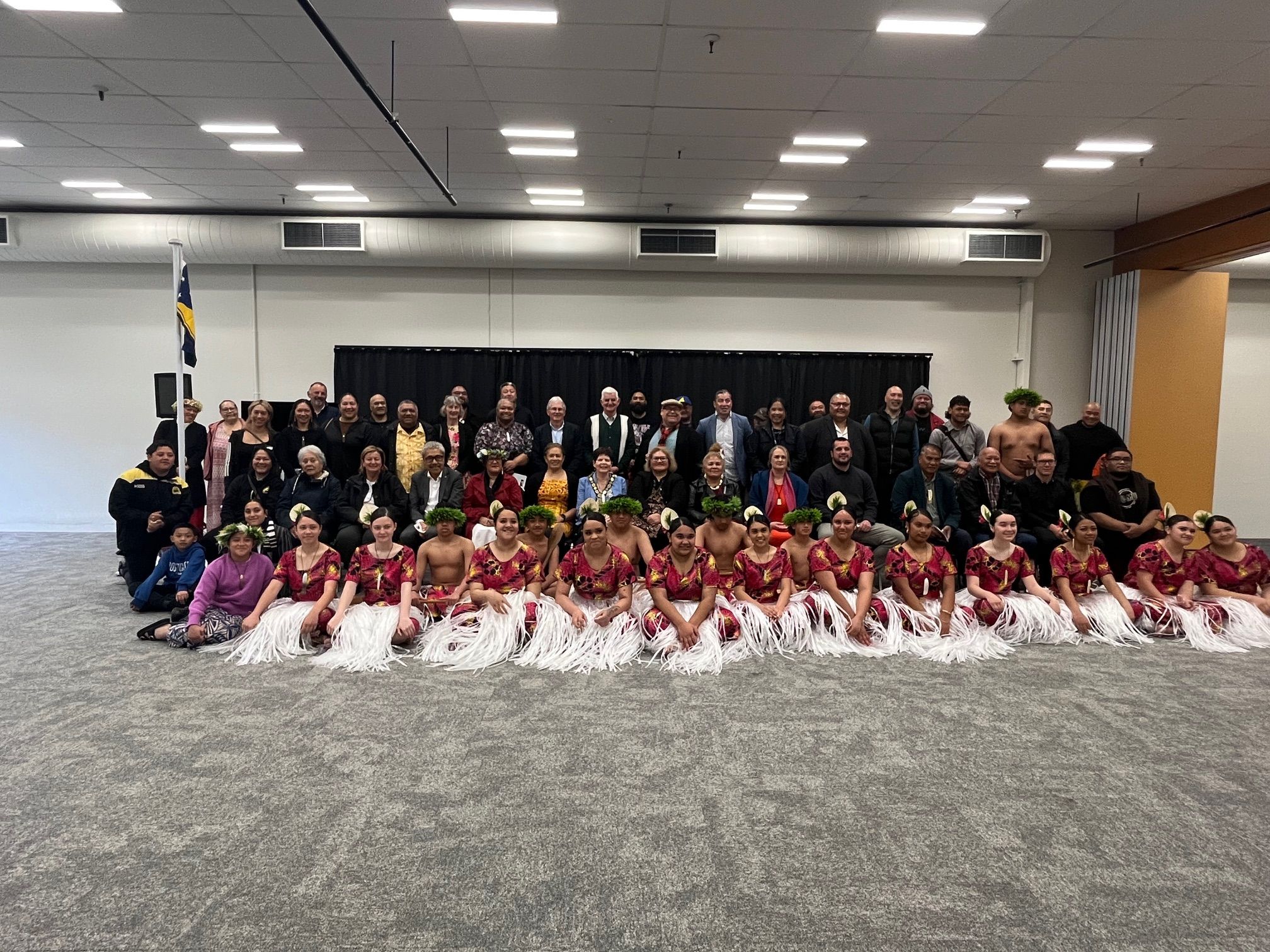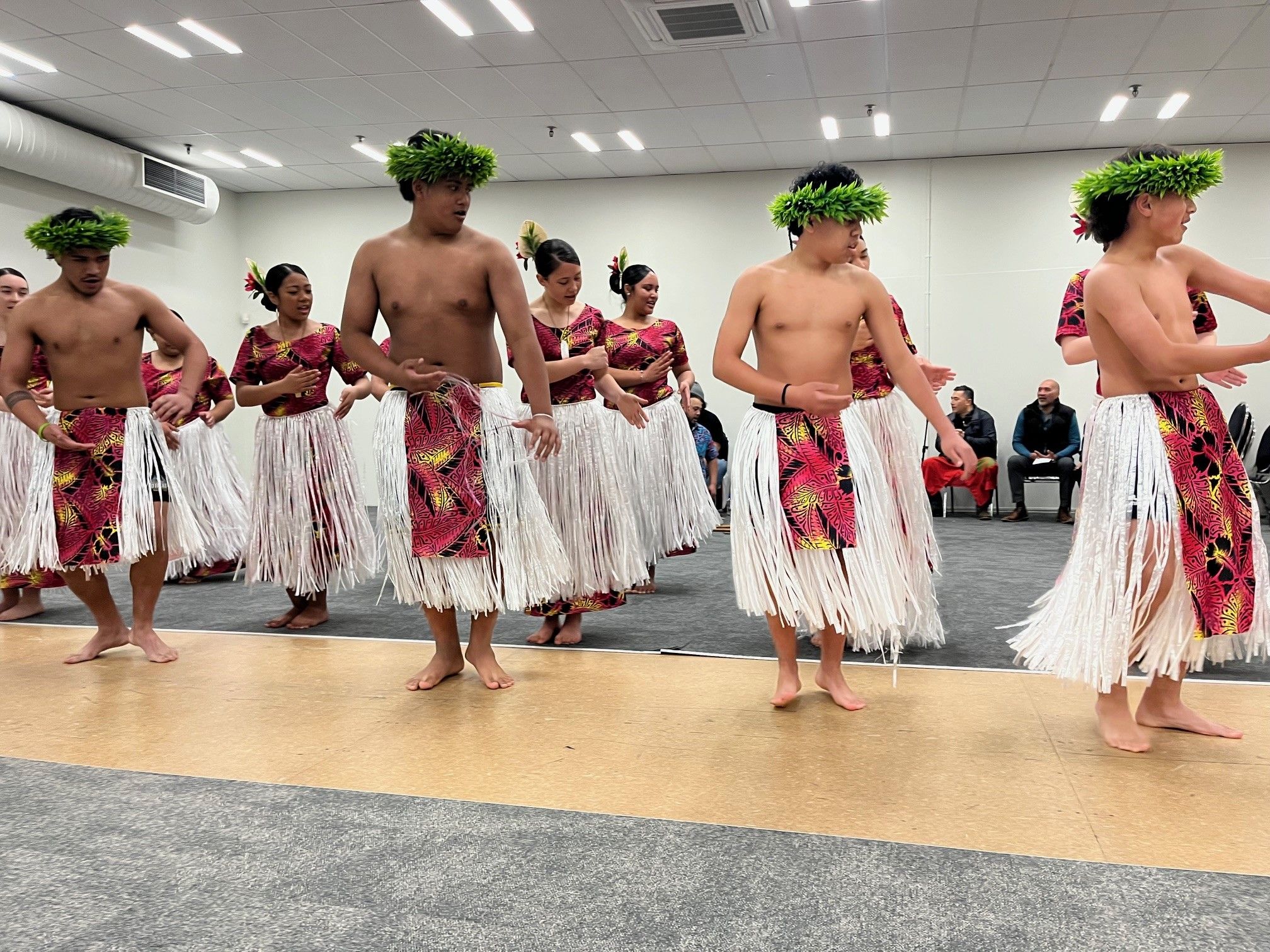

Young Tokelauans proudly celebrate their language and culture in Aotearoa.
Photo/Porirua City Council
Tokelau Language Week 2025: A culture unleashed as NZ's diaspora celebrates
From fatele dancing to online seminars, this weekend marks the end of Te Gagana Tokelau.



Pacific comedy web series ‘The School Repeaters’ hits screens


NZ-born toddler denied visa despite severe brain injury and faces risk of unlawful status


Papatoetoe vote rerun under close scrutiny

Pacific comedy web series ‘The School Repeaters’ hits screens


NZ-born toddler denied visa despite severe brain injury and faces risk of unlawful status
Tokelau communities across Aotearoa have been celebrating their Language Week with the theme “Tokelau, puaki mai kō tau aganuku, mo na fanau i te lumanaki - Tokelau, unleash your culture for future generations”.
From fatele dancing to online seminars, the events were a vivid reminder that language and culture remain vital threads in the Tokelauan story.
In a statement, Secretary for Pacific Peoples, Gerardine Clifford‑Lidstone, says Te Gagana Tokelau is recognised as an endangered language so every speaker and learner matters.
“You don’t have to be fluent to make a difference; each greeting, each song, each story shared helps keep the language alive,” she says.
Among the many voices this week, Lafaele Vulu of Te Umiumiga Tokelau Hutt Valley, reflected that “My Tokelau heritage flows through every moment of my life.
"Speaking te Gagana Tokelau is a divine gift from God and a core part of who I am.”
Highlights of the week
The celebrations spanned online and in-person activities, including fish role-plays, dance workshops, storytelling, and cooking demonstrations, as well as seminars on Tokelauan history and contemporary life in the diaspora.
At the National Library of New Zealand, classic Tokelauan music played in the foyer all week as part of the celebration.
At the Auckland University, Mia‑Mae Taitimu‑Stevens (Te Rarawa/Aotearoa, Togafuafua/Vaito‘omuli-Tokelau) shared how the theme resonated with her own journey of cultural reconnection.
“Growing up disconnected from both my Pacific and Māori whakapapa, university became the space where I was simultaneously (re) learning who my people are and who I am.”

Tokelauans in Porirua gather to celebrate their language and culture this week. Photo/Porirua City Council
Reflections and momentum
What emerged from the week was a clear message: preserving te Gagana Tokelau is a communal endeavour, and every effort counts.
As Clifford-Lidstone put it: “Oi kana hei taia ko lata matau, e kino ko lava kana puke ki ei - it is better to try and fail than to fail by not trying.”
Vulu adds that “You don’t have to say everything perfectly, just choosing to try is how we keep our language alive. Each small act of language and culture counts.”
These reflections come against a backdrop of urgency: only 23 per cent of Tokelauans in New Zealand report speaking their language, and among those under 15, the figure drops to just 13 per cent.
What’s next?
As the week wraps, the challenge turns to everyday practice and long-term commitment.
Resources such as language cards, posters, email signatures, and background images were released and downloaded during the week.
Community organisers emphasise that beyond one week of celebration, the work continues - in family homes, churches, schools, and community halls.
In her community message, Vulu says, “Fakafetai lahi lele to all who contributed … whether writing a piece, uploading a video, partaking in our fishing role-play and dance, or simply attending the seminar online.”
The hope is that te Gagana Tokelau thrives not just in celebratory moments, but in daily use, and that future generations will grow up hearing, speaking and seeing the language across all parts of life.

Young Tokelauans perform during the weeklong celebrations. Photo/Porirua City Council
“We teu le vā, we nurture our relationships, because connectedness is a key thing for us as Pacific. And when we stay connected, we stay protected. There is hope out there, there is support out there … There’s always hope and help.”
This year’s Tokelau Language Week achieved more than a series of events: it was a rally cry for culture, identity and continuity.
With voices from elders, youth, academics, and community workers, the message rang clear: language isn’t just words, it’s the living pulse of a people.
As the flags are folded away and the last songs are sung, the real work begins, Vulu says. "Unlocking te Gagana Tokelau in our everyday moments, for the sake of fanau i te lumanaki for our children and their futures."
Fakafetai lahi lele to everyone who joined in. Let the voice continue. Mālō ni!